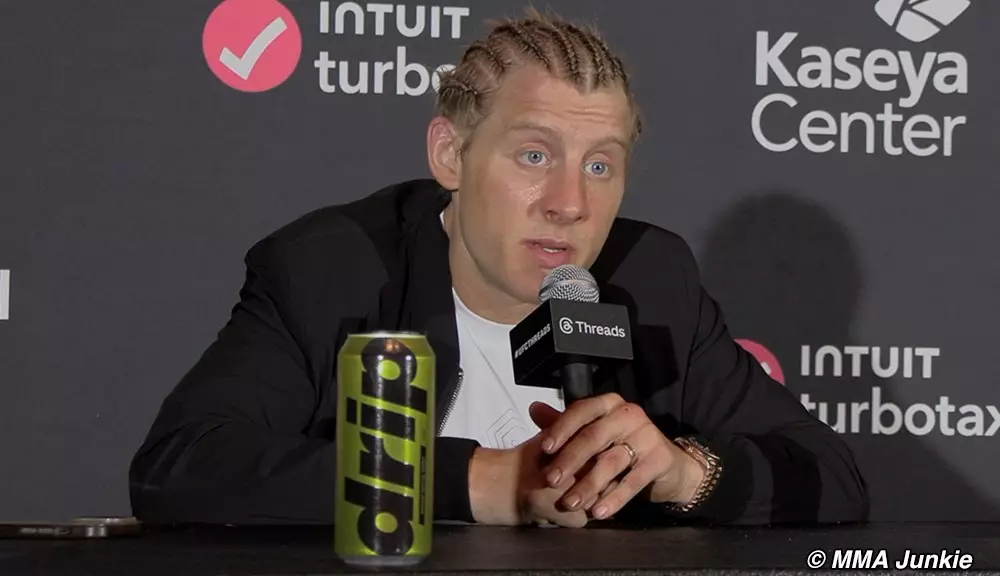Paddy Pimblett turned heads with a striking performance at UFC 314, where he showcased not only his impressive skills but also his sharp wit and confidence. Coming off a decisive victory over Michael Chandler, Pimblett solidified his position as a contender to watch in the lightweight division. His ability to mix technical prowess with engaging showmanship has drawn attention, and as he stepped to the microphone post-fight, he seized the opportunity to issue a challenge to some of the biggest names in the sport.
However, the glaring omission of Ilia Topuria from his callouts raised eyebrows. In a sport fueled by rivalries and personal grudges, ignoring an opponent who has previously exchanged blows—both verbally and physically—was surprising. When asked about it, Pimblett chuckled and explained his lapse in memory, dubbing Topuria “irrelevant.” This nonchalant dismissal hints at the psychological warfare that permeates mixed martial arts, where the mental aspect is just as crucial as physical capabilities.
The Weight of Rivalry and History
Pimblett and Topuria share a contentious history, dating back to a hotel scuffle that escalated into a bitter online feud. Despite this, Pimblett’s decision to overlook Topuria speaks volumes about his self-confidence and strategic focus on wealthier, more popular potential matchups. His focus seemed genuinely aligned with the bigger fish in the mixing pot of UFC, including Justin Gaethje, Dustin Poirier, and Charles Oliveira—fighters who captivate fans and carry significant weight in the division.
Pimblett uses his triumph over Chandler to project confidence, claiming that the blueprint for defeating Topuria mirrors the strategy he employed in that fight. His words hint at a desire to elevate the stakes, suggesting that he believes he can replicate his success against a more prominent name. In the world of UFC, victories are currency, and Pimblett is negotiating his worth with every callout he makes.
Aiming for Championship Glory
With aspirations set on gold, Pimblett is not just content to fight—he yearns for the championship. His blueprint is evidently ambitious, indicating his intention to secure a title fight by 2026. This roadmap places him in a competitive and demanding context, where he will need to navigate formidable opponents to realize his dreams. Pimblett’s aspiration is not merely for a belt; he seeks to break records and carve his name into UFC legend.
The audacity of claiming he possesses superior submission skills than Oliveira, a widely respected former champion, reveals an ambitious nature that could either be seen as either confidence or recklessness. Nonetheless, it serves a purpose in stirring interest around his persona, marking him as a fighter who is both up for the challenge and ready to take risks.
Pimblett’s trajectory within the octagon outlines not just a fighter’s ambition but also the complexities of ego, strategy, and the ever-evolving dynamics of UFC competition. As he navigates the perilous terrains of rivalries, fan expectations, and his own aspirations, his journey towards the UFC throne is bound to be both riveting and contentious.

